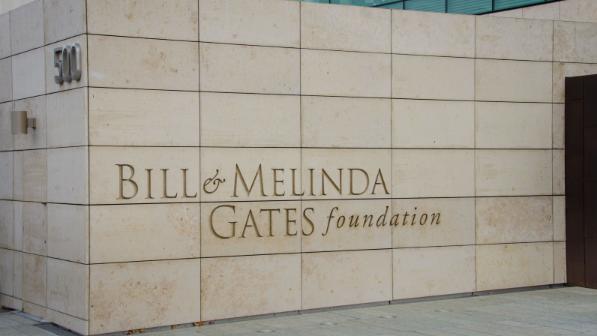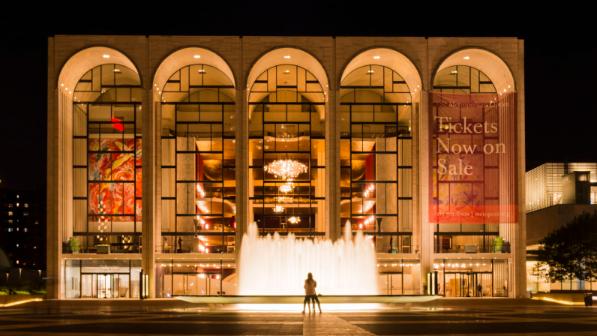“Nothing travels faster than the speed of light,” noted Douglas Adams, author of “The Hitchhiker's Guide to the Galaxy,” “with the possible exception of bad news, which obeys its own special laws.”
If you want proof that Adams was right, look no further than the unsettling, unreal, almost dystopian events of the past few months. Bad news does indeed travel extremely fast – and, sadly, at the time of writing, there’s lots of it to go round. Worse than that, there is – seemingly – no other story in town. Every downbeat headline, every portentous news bulletin, every ominous conversation is fully geared around COVID-19 and its devastating fallout.
Yet if you dig underneath the constant gloom, there are countless tales of people and companies pulling together at a time of crisis. There is light to be found in the dark if you care to look for it. It’s just that, generally, good news hasn’t been getting much airtime of late.
From Fashion to Medical Devices: Industries join in the battle against the Coronavirus

Take the perfume arm of French luxury-goods multinational LVMH, which repurposed its manufacturing line to make hand sanitizer, free of charge. Or electronics giant Foxconn and fashion houses such as Chanel, YSL, Prada and many others, which switched production to make surgical face masks after demand soared worldwide. In the U.K., more than 60 companies – including Vauxhall and Airbus – joined the effort to produce 20,000 ventilators in two weeks. And many others are repurposing their production lines – such as Bosch, which developed its own COVID-19 speed test or Ford and GE, which teamed up to make ventilators. Medical device maker Medtronic went one step further and shared design specifications and code of its portable ventilator for free. Meanwhile, in Spain, which was hit particularly hard by the virus, Inditex, the owner of fashion retailer Zara, offered to make scrubs for medics in the country. Sections of the hospitality industry have also stepped up to do their bit – for example, some luxury hotels re-inventing themselves as quarantine centers.
Forgetting their differences

It’s not just big business that has been working to beat the disease. Entire countries have been forgetting their differences and pooling their resources. For example, in January, the EU sent 50 tons of protective equipment to China, where the coronavirus outbreak began. Later, when the pandemic in Europe took hold and then worsened, China sent supplies and equipment to the EU, with shipments emblazoned with the Chinese flag and the words “the friendship road knows no borders.” After speaking to Li Keqiang, China’s premier, European Commission president Ursula von der Leyen emphasized that they were ready to “support each other in times of need”; a fact underlined when China – alongside Cuba and Russia – sent teams of medics to those areas of Italy most badly affected by the disease. Meanwhile the U.A.E. sent aid to Syria, Iran, Pakistan and a number of other countries.
Applauding the everyday heroes
The magnitude of the situation has also thrust into the spotlight those workers and institutions usually taken for granted. It would certainly explain why people in lockdown across Europe have been standing on their doorsteps and at their windows in coordinated displays of national unity to applaud and cheer healthcare staff. Other heroes operating at the sharp end of the crisis have been revealed to be delivery drivers and warehouse and supermarket staff, who are keeping supply chains running and shelves stocked and stacked with essential goods. This task, however, has become more challenging by the day. Many countries have been telling their citizens to stay at home, which has seen online orders spike by 20%-30% on average. No wonder at logistics companies, such as DHL, teams and couriers have been working flat out to serve their customers. Suddenly, more of us are relying on doorstep deliveries than ever before. DHL couriers and mailmen have been thanked and even rewarded with small treats by customers as service levels are kept up as much as possible.
Markus Reckling, Managing Director DHL Express Germany, comments: “Our mission at DHL is “Connecting people. Improving lives”. Never has this been more important than today. I am extremely proud of everybody at DHL Express and of our teams across all the DHL divisions for working so hard these days and helping to keep these global supply chains running. Seeing that our customers are really valuing this motivates me big time. Our NPS score, which is a metric with which we measure customer satisfaction, has skyrocketed to all-time highs over the last three weeks.”
Meanwhile it’s also the hour of volunteers – such as the 500,000 who signed up to help the U.K.’s National Health Service. “I have signed up to volunteer as a driver,” says Chris Weeks, who has decades of experience as DHL’s VP Humanitarian Affairs. “In times of crisis, we must do whatever we can to help.”
Generous donations on a larger scale

The coronavirus has also prompted big, bold, philanthropic gestures from wealthy individuals. Among them Chinese billionaire Jack Ma, the co-founder and former executive chairman of Alibaba Group, who donated 20,000 test kits, 100,000 masks and 1,000 medical-use protective suits and face shields to all 54 African nations, plus ventilators and other equipment to New York, which was been hit hard by the pandemic. Designer Giorgio Armani contributed over $2 million to hospitals in Rome and Milan, as well as to the Italian Civil Protection Agency. Oprah Winfrey donated $10 million to various organizations. And Bill Gates announced that the Bill and Melinda Gates Foundation would give $100 million to help global coronavirus detection, isolation and treatment.
Why go looking for the latest logistics trends and business insights when you can have them delivered right to you?
Socializing the virtual way

Eric Yuan, founder of video conferencing company Zoom, made his service free for unlimited use in affected countries, including China, Italy and in schools across the U.S.
That’s been particularly welcome because, in these days of social distancing, video conferencing is more important than ever. It’s thrown a lifeline to people working from home and helped the mental health of isolated families and friends who are starved of human contact. Virtual coffee mornings and virtual evening drinks meet-ups have become commonplace. Under lockdown, Italians have been enjoying a virtual version of their vibrant cocktail hour, which they have called “Skype-aperitivo.”
“With nobody certain how long the lockdown will remain in place, we could not let this stop us from having our regular exchange,” says Parma-based TV executive Roberto Iotti, who began video calling his friends once or twice a week for a drink and chat. “As many of us use Skype for business anyway, we had an idea to just meet up virtually via Skype’s video function – ‘share’ a drink virtually and catch up on each other’s news.”
Free offers for arts and culture fans

And while cinemas, theaters and concerts halls have closed, many artists are determined that the show must go online, with pop stars and musicians – including Chris Martin, John Legend, and Keith Urban – livestreaming free concerts on social media. Arts organizations such as the National Theatre in London, Berlin’s Schaubühne theater and the Metropolitan Opera in New York have been streaming their productions online for free.
“I have two decades of crisis experience,” says Weeks, who has dealt with airport logistics in the aftermath of disasters, from tsunamis to floods and earthquakes. “The COVID-19 crisis is certainly a crisis on unprecedented magnitude. But if there is one thing I know for sure: the worst crisis brings out the best in human nature – I have seen it time and time again. And it is the spirit of humanity, and everyone working together that overcomes, and endures, until we come out at the other end. More than ever, we need to forget about competing, and collaborate to beat this thing.” — Tony Greenway, Michelle Bach
Published: April 2020
Images: iStock






